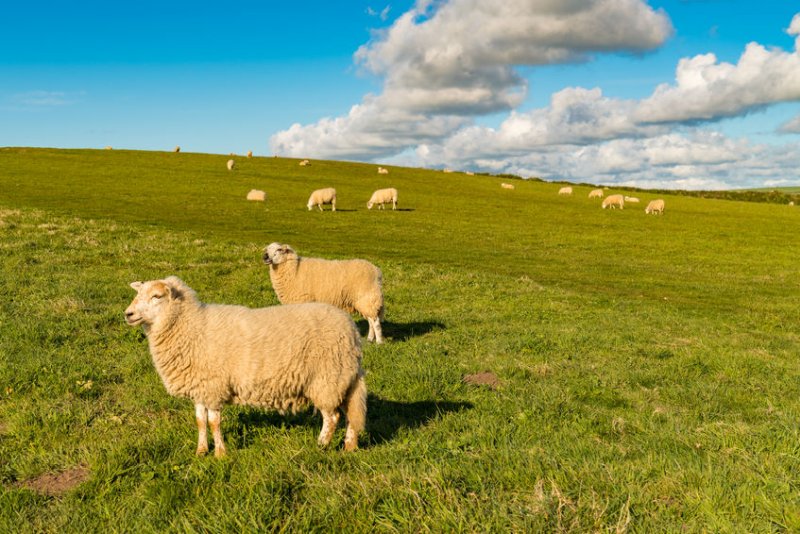
Welsh livestock farmers have been given tips to cope with the lack of rainfall as new figures highlight the dry weather’s impact on grass growth.
With parched fields now a common sight across the countryside, extremely dry weather over the past two months is starting to have a major effect on farms.
Sheep and beef cattle in Wales are reared in a non-intensive way, mostly using natural grass rather than artificial feed.
Hybu Cig Cymru – Meat Promotion Wales (HCC) supports the grass monitoring project, GrassCheckGB, which aims to improve grassland productivity and pasture utilisation on 50 farms across Britain.
Soil moisture readings have been extremely low in Wales, according to the data measured by the weather stations on 14 farms.
This weeks’ average recording for the Welsh farms is 146 centibars (cb). A reading of higher than 60 cb has the potential to restrict growth.
Rainfall has been gratefully received across some parts of Wales in the past week and has resulted in grass growth figures increasing by 8% to 41 Kilo of Dry Matter per Hectare (kg/DM/ha).
However, in comparison to the 2019 figures, it becomes apparent the lack of rainfall has had significant effect.
Grass growth for farms across Wales this time last year was 77 kg/DM/ha which was accompanied by an average soil moisture reading of 79 cb.
“In such dry conditions grass growth is slowing, therefore it is important to avoid over-grazing to prevent regrowth slowing even further,” said Nia Davies, HCC research officer."
Where grass supply is short it may be necessary for farmers to add buffer feeds, graze silage ground or give additional concentrates to stock at grass.
"It is advised to keep a close eye on local weather forecasts and measure grass growth more regularly now to get a clear picture of how pasture is being impacted by the current conditions,” Davies said.
HCC’s Stoc+ project has looked further into the animal health effects of the prolonged dry period.
Lowri Williams, HCC flock health officer, said: “Poor grazing and short grass can be associated with a higher worm burden due to lambs grazing earlier if their dams’ milk supply is reduced and due to higher levels of infection on short grass."
Infective worm larvae climb up the grass but more of them are concentrated nearer the soil, Williams added.
"In prolonged, hot, and dry conditions worm eggs are less likely to hatch so the risk can be lower but there is often a mass hatch after rain with a high risk of worm infestations."
She added: “It is important take additional measures and consider issues such as trace element deficiencies in prolonged dry weather periods.
"If you have had problems in the past, you suspect deficiencies, or are unsure, farmers should consider consulting their vet to discuss monitoring and testing.”
